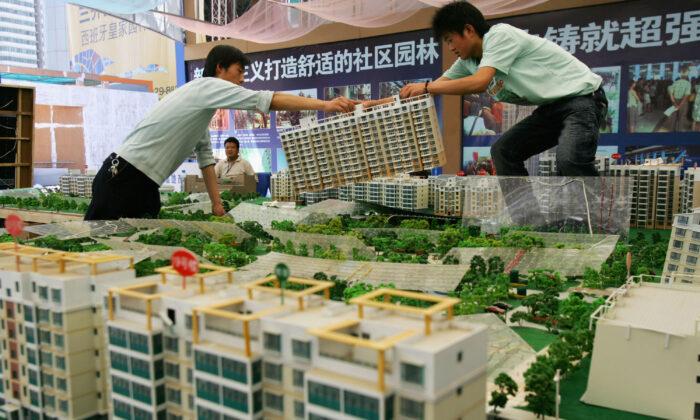Last Tuesday, China’s April Politburo meeting vowed to cut property inventory, piquing the market’s interest. The meeting of the China’s 24-member leadership body underlined the need to reduce current inventories and improve future supply policies. With the removal of China’s ideological stance that “houses are for sheltering, not for speculating” and with a new resolve to “study how to digest the existing housing inventory and optimize the new housing supply,” the focus looked to be more market-oriented.
Nonetheless, while Beijing’s policy stance raises optimism for market stability, analysts warn that executing the politburo’s new pledge will be easier said than done. The path to property recovery could be long and volatile, they say, given the scale and varied nature of China’s property market.
Bureaucratic Red Tape
The massive scale and diversity of China’s property inventory pose a significant challenge to the authorities. With a range of residential units and commercial spaces, the identification, valuation, and management of these assets is not a mean task.There is a therefore a need for comprehensive policies that are properly executed. However, that can be difficult given that government bureaucracy sometimes slows down decision-making processes.
“We are afraid the follow-up policies will also be introduced with controlled pace and limited magnitude,” said Nomura analysts Jizhou Don and Riley Jin, in a note on May 1, viewed by The Epoch Times.
“The magnitude and timing of follow-up policies are more important,” the Japanese investment bank’s analysts said.
At the July 2023 Politburo meeting, for instance, when authorities removed China’s longstanding policy stance that insisted on “housing for living in but not for speculation,” the market showed initial excitement, on the belief that there would be a sharp turnaround of the government’s restrictive property policy measures.
However, no major follow-up policy measures were announced in the weeks following the summit. The first significant policy shift involving the reduction of mortgage down-payment and mortgage rates across the country was implemented five weeks later, at the end of August 2023.
Follow-up policies will most likely take some time to happen this time round, analysts fear, and when they do, the worry is that they will be restricted in scope and size. Three cities, particularly Chengdu, Tianjin, and Beijing, have already started to ease their local property rules. However, unlike Chengdu, which has completely lifted local house purchase restrictions (HPRs), Tianjin and Beijing have only partially relaxed their HPRs.
Demand-Supply Forces
“The Politburo statement does not mention the price aspect of the property market,” said Raymond Yeung, chief economist at market and financial research firm ANZ, in a May 3 note viewed by The Epoch Times.According to Mr. Yeung, the structural adjustment of China’s property is far from over. Until March of this year, for example, property sales, in square meters, were down about 23 percent year to date, while the average selling price was down 7.3 percent as well, implying that both variables fell simultaneously.
“The decline in price [still], is not enough to induce quantity demand,” Mr. Yeung said.
Government Support
The politburo’s approach in April includes utilizing funding for local governments to acquire unsold units, which requires significant financial resources and coordination.“If the property assets are sold to local governments at a discount, the loss will be borne by property developers. Banks or other lenders will bear the cost, though they will receive the much-needed cash flow,” Mr. Yeung wrote.
Consequently, if the discount is insufficient, local governments will have to bear the valuation risk. Using debt to acquire overpriced assets can also negatively impact local governments’ debt and fiscal status as well.
According to Goldman Sachs, China’s housing market still has more room to decline. Despite Beijing’s efforts to revive the sector, the slump, which has lasted for three years, has not been effectively addressed. The global financial agency estimated in April that China may need to allocate more than 15 trillion yuan ($2.1 trillion) to resolve the issues affecting the sector.
If central or local governments are unable to sell ultra-long bonds at a cost that matches the rental return, inventory purchase may not be worthwhile. Significant interest rate cuts or yield curve management are necessary to push the yield.
The People’s Bank of China has already expressed concern about long-dated bonds, fearing that might lead to a crisis like the 2007 U.S. subprime crisis, Mr. Yeung said.
“Any potential game changers [hence], would be very costly,” concluded Goldman Sachs, in its reaction to the politburo’s new property revival strategy.





